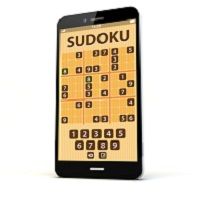Sudoku Puzzles Gave Man Epileptic Seizures
Sudoku puzzles may serve as a "brain workout" but in a case reported in Germany, the exercise proved too strenuous. Solving the puzzles gave a 25-year-old man seizures.

Sudoku puzzles—games which are solved by aligning single-digit numbers in a specific way in a grid—are often touted as “brain workouts.”
In a case reported in JAMA Neurology, the exercise was too strenuous: solving Sudokus gave a 25-year-old man seizures.
The man had recently survived being buried in an avalanche during a ski trip. Before he was rescued, he endured hypoxia for 15 minutes and as a result developed post-hypoxic intention myoclonus with involuntary myoclonic jerks of the mouth when he spoke and of his legs when walked.
His arms still functioned normally—until he started doing Sudoku puzzles, Berend Feddersen, MD, PhD, and colleagues at the University of Munich, Munich, Germany wrote.
The thinking process involved in solving the puzzles triggered clonic seizures of the patient’s left arm. The seizures would stop when he discontinued working on the Sudoku.
“Hypoxia most likely caused some diffuse, widespread damage as well as a regional loss of right centroparietal U fibers,” the authors wrote.
Imaging studies done while the patient was having the seizures showed widespread activation of the right centroparietal cortex. “Functional activation of this hyper-excitable region results in focal epileptic seizures,” they noted.
Though there are many approaches to treating epileptic seizures, in this case the most effective therapy option was obvious.
“Our patient stopped solving Sudoku puzzles and has been seizure-free for more than 5 years,” Feddersen wrote.